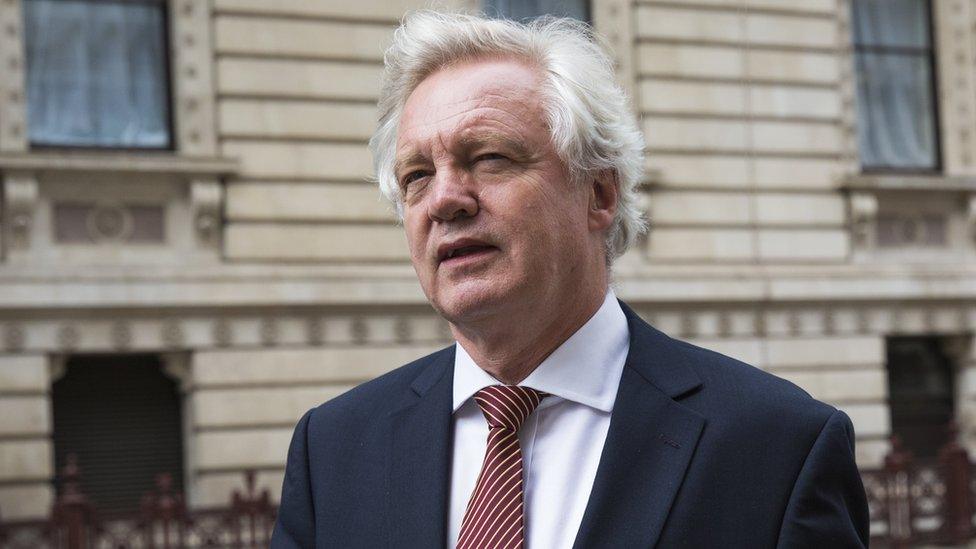Managing Brexit
- Published
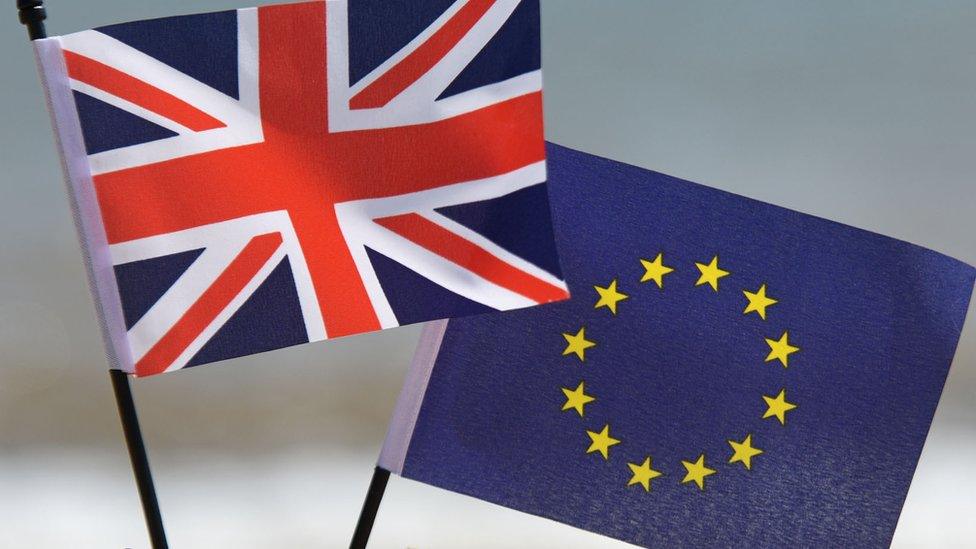
After the political shocks and aftershocks comes a lull.
The new government is starting to prepare the ground for the real battles that lie ahead.
It is what lies behind the visit by Theresa May to Europe's two most powerful countries, France and Germany.
Over dinner with Angela Merkel in Berlin on Wednesday, there will be no negotiations about Brexit.
The German chancellor has ruled that out until the UK formally triggers the withdrawal process.
And, in any event, the UK does not yet know what it wants or what model it favours.
These meetings are about setting the tone, establishing personal relations for the difficult times that will surely come.
Theresa May will want to appear confident that she can manage the challenge of making Brexit a success.
In its first week in office, the government has been on a mission to reassure the international community that Britain remains open for business.
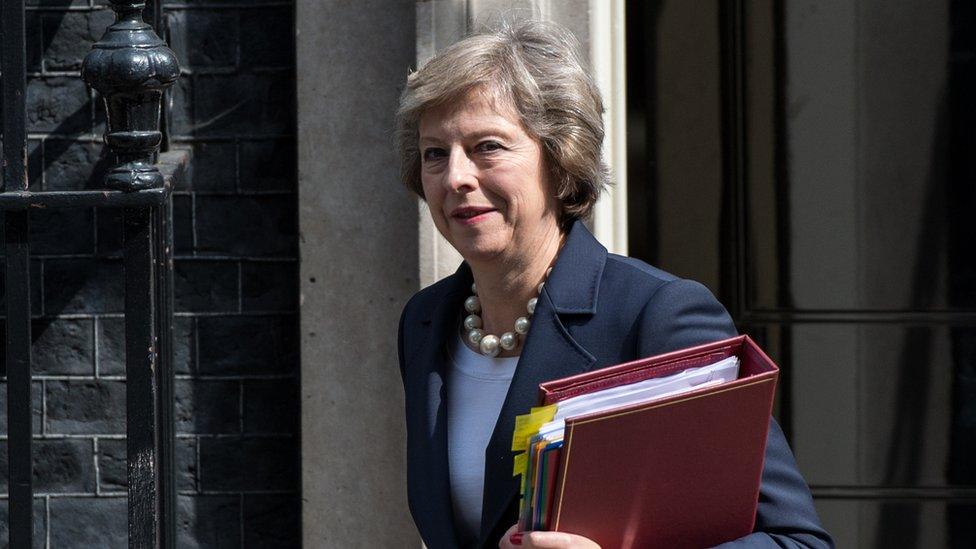
The British government is seeking to reassure its allies and the markets about Brexit
You can sense the nervousness, however.
Every piece of news that can be branded as "good" is seized on:
the Australian prime minister offering to strike a trade pact with the UK as soon as possible
the world's largest drug company promising to "continue investing strongly in the UK"
the resilience of the FTSE 100
All the public statements are geared towards reassuring allies that Britain will remain outward-looking and a global player.
The prime minister will meet a German chancellor who will have a huge influence on the outcome of Britain's future.
Angela Merkel's instincts are to be cautious.
While some in Germany are impatient for Britain to start its negotiations quickly and for the EU to move on without Britain, Angela Merkel will be unemotional.
Where possible and without compromising the EU's basic values, she will seek a deal that is least disruptive to the EU.


She will be clear that the EU and Germany have interests:
the importance of the UK as a market for German manufacturers
the potential for uncertainty hurting a still fragile eurozone
the need for British involvement in all the security challenges facing the EU
She will also know that sitting beside her at dinner is a new leader grappling with two seemingly incompatible goals:
retaining access to the EU single market
reducing the numbers of EU migrants who travel to the UK under the freedom of movement
The meeting with the French president will be more problematic.
Francois Hollande wants the UK to pay a price for leaving the EU.
His instinct is partly driven by the need to undermine support for Marine Le Pen, who wants to hold a similar referendum in France.
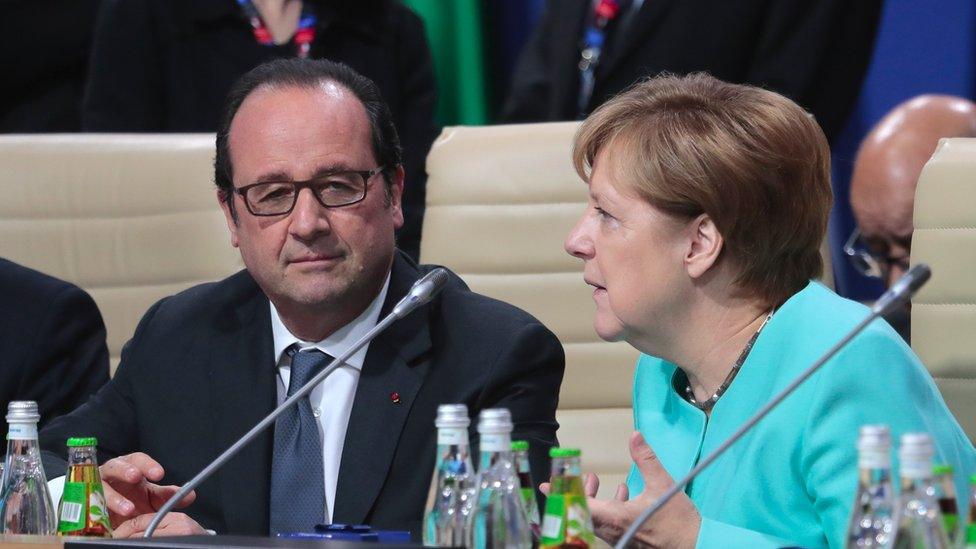
President Hollande and Chancellor Merkel may differ in their approach to Brexit
The French have also been openly lobbying UK banks and financial companies to relocate inside the eurozone and in particular to Paris.
It has been a long-standing French interest to weaken the City of London.
Even so, he will want the increasingly close defence relationship with the UK to continue.
It may prove helpful that the UK referendum vote appears to be deterring voters elsewhere in Europe from following the same path.
Support for the EU in some other countries has actually surged.
In Denmark, the percentage of voters demanding a referendum has dropped from 40.7% to 32%.
Italy had been turning increasingly eurosceptic, but now two-thirds of voters want to remain in the EU.
Support for a right-wing eurosceptic party in Germany has also fallen.
This pattern, if it continues, might just embolden Europe's leaders to feel less under siege and more open to conducting a constructive relationship with the UK.
And the view in Paris is that the British economy will pay the price for Brexit.
Almost certainly, after this round of talks there will be a pause.
Britain has voted to leave the EU, but there is no agreed plan for what deal it will seek.
There won't be for months.
That is why it is unlikely that Article 50 will be triggered before 2017.
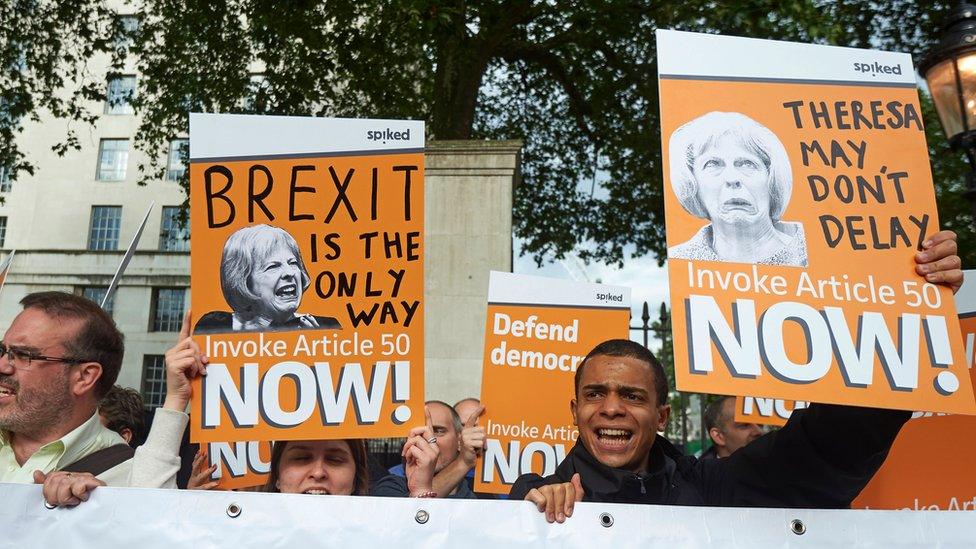
Pro-Brexit campaigners are calling for the UK's withdrawal from the EU to begin as soon as possible
It is not clear whether the government will make a priority of staying in the single market.
Could it accept operating under rules it had no say in?
Will the City and financial services retain their EU "passport", allowing them to operate throughout the EU?
What will uncertainty do to investment decisions?
Will consumers continue spending?
How severe will be the slowing of the British economy?
Can withdrawal and a new trade agreement be negotiated in the two-year window allowed for under Article 50?
Who will negotiate all these trade deals when Britain hasn't negotiated such a deal in 40 years?
The future is littered with complex questions.
The new British government understands that the years ahead will be much easier if the divorce is amicable.
And that is why these early meetings in Berlin and Paris are important.
It is also the case that EU has its own problems.
There is an Italian banking crisis that, if not resolved, carries great risks for the eurozone.
There are elections next year in France and Germany.
The EU has to demonstrate it can ratify an EU-Canada trade deal that has been more than seven years in the making.
The free trade deal between the EU and the USA is in difficulty.
It will encourage some in the UK to believe that, despite all the sound and fury, there is a mutual interest in reaching an accommodation.
- Published20 July 2016
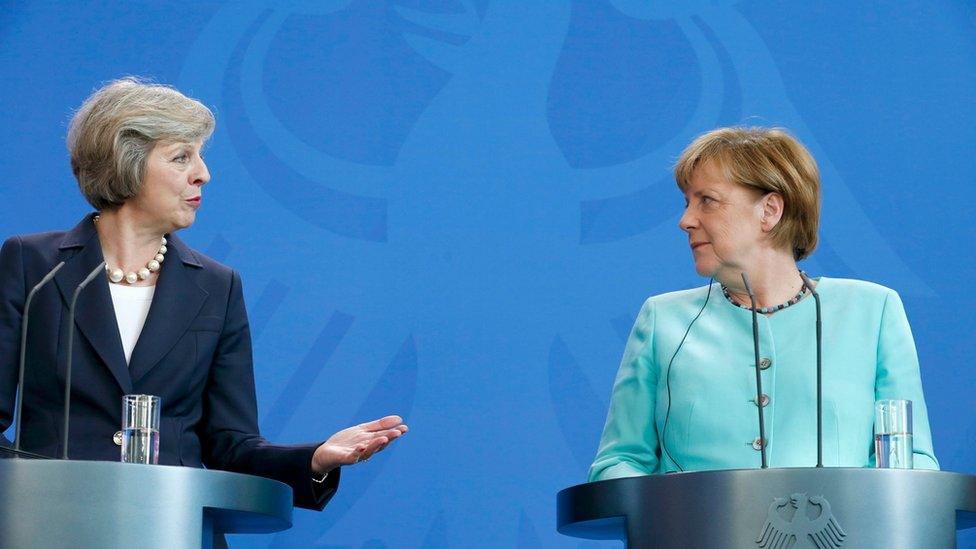
- Published15 July 2016
